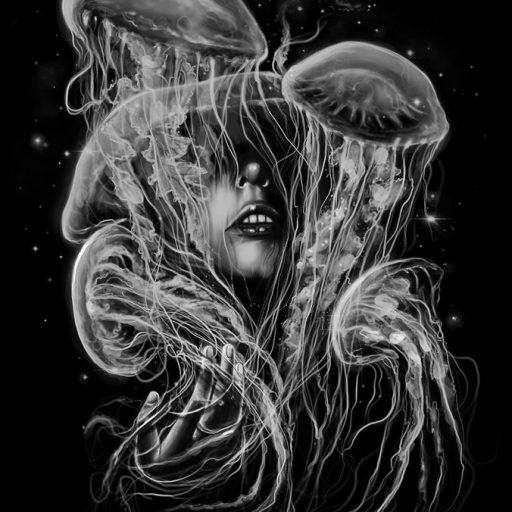Is It A Delusion Or Is It Something Meaningful?
11 Aralık 2023Büşra Öksüzkaya
“Truth is always a delusion – Friedrich Durrenmatt
There are two people: one is Dostoevski’s underground man (referred to as “The Man” from now on) who has profoundly traumatic and feeling lost, and the other is Victor Frankl who has devoted his life to helping traumatic and lost people. The Man insists on holding his overly conscious mind as a burden, lives in despair, rejects free will because of its rationality, and harbors resentment toward everything and everyone that fail to understand his state of mind, therefore, he sees no meaning in life. On the other hand, Frankl is tragically optimistic, good with adaptation and saying “yes” to life, choosing resilient over resentment and believing that we can use our free will in every situation that occurs, even in those we see no hope in it. He is the advocate of finding meaning. When we compare these men as I have been right now, they appear quite different than each other. But actually, they both are people who live through tragic things. The only difference between them is one is mostly in battle with himself and determined to find an excuse to not get better, the other is eager to get past all the terrible things he experienced, and further to that, he tries to be an inspiration to those like The Man by simply saying “There are other truths and perspectives than yours, search for them.”
Every case or situation has a couple of different perspectives to look at. That is why, Frankl is right believing in finding meaning. However, we know that no one can force another to adopt those ‘meaningful’ perspectives even if they discover them. In Notes From The Underground, The Man says, “An intelligent man cannot become anything seriously, and it is only the fool who becomes anything.” (Dostoevski, 2019, p. 9). One can understand from this statement that he is conscious enough to see what is happening around but he chooses to find and hold the darkness in every situation and renders them meaningless. In other words, he chooses to experience the world through the lens of nihilistic suffering. Like every person, he has emotions and desires and, he wants to belong and attract attention. However, with the burden of his consciousness, he can only engage in disturbing, mean, and confusing acts that make him an outsider and cause him to live in his own mind. He states this by saying “I invented adventures for myself and made up a life, so as at least to live in some way. How many times it has happened to me–well, for instance, to take offence simply on purpose, for nothing.” (Dostoevski, 2019, p. 27). And this is an illustration of the nihilism Frankl urges us to fight.
According to Frankl (1983), therapists should be immunizing their patients against nihilism. That is why his therapy method (Logotherapy) has built against it. He also works against determinism that rejects free will and he supports the idea of every human has their own autonomy and can decide for themselves even in unchangeable situations. In order to follow his point of view, one must first assess the situation realistically and accept what has already happened. Individuals can then use their free will to make their own decisions. They can either choose to whine, be hopeless and depressive or they can use the situation to create more flourishing life. Sometimes it looks like both of them have some kind of extremist pointof view but, as Beauvoir says in her book The Ethics of Ambiguity (1947), it does not matter why we are born in this world or if it is worth it, we are here now and we only should be deciding under what kind of circumstances we wish to survive. And why should we choose pain and despair like The Man? Since Frankl likes to inspire people, perhaps he can help The Man to discover goodness, love, and faith to enhance his remaining life.
So, let us imagine what would happen if The Man were Frankl’s patient. (Probably, everyone can guess that it will be such a challenging task for Frankl.) As every therapist does, Frankl would first try to gain his trust in a safe environment. The more he learns about him, the more he would encourage him to adopt different perspectives and try to change his reaction toward the world. Other than meaning, The Man has no purpose in his life. What is he living for exactly? Only for bitterness? It looks like that, but Frankl would try to help him discover what he really wants to do with his life and create new values. Besides, we already know that The Man has very conscious living. Frankl might also try to help him to see that this consciousness does not need to be a burden but an opportunity to do good in his life. Since he can see and be aware of everything, he can use all the things he knows for his own good again, and even inspire people. Because no matter what he thinks, there is no other world to live in and, Frankl is right that The Man has a choice about how to make his own world worth living for. Maybe this is what people actually do not understand: no one should make “the world” a better or meaningful place for everyone, if every person is able to make “their own world” better for themselves, the world will be a good place in total. Maybe this is the case and Beauvoir is again right to say that it does not matter if our being is meaningful or not, we can find our own meaning and to make this happen we might function as in Frankl’s three principles: create something, love and accept hopeless situations.
But unfortunately, therapists like Frankl lack the understanding of not everyone will be able to do good with their life, see other truths, overcome despair, and find meaning maybe because of their character, how they have been affected by the things they have been through or they simply will not be ready to overcome things at all. Even though, I believe Frankl’s algorithm for finding meaning is right, it is not right for everyone and probably he would not be able to help such a determined person like The Man change his perspective. So, you can only inspire someone who is ready to change their circumstance and do something different with their life. Because The Man finds despair as something joyful and rationality as some kind of delusion, he is actually content with his life. Even his resentments give him joy because they help him feel every bit of emotion and feed his consciousness by creating a deep understanding of himself.
So, when we look at things from this point of view, both actually see each other as delusional. Because there is a very thin line between meaning and meaninglessness and both The Man and Frankl’s roads cross on pain, resentment, and despair. Here, the issue shapes like “choose one way and find meaning and choose the other to continue with your nihilism.” When we look at things from here, it looks like only the cross path contains mere truths by hosting pain and despair. And from that point onward, it is the person’s own delusion (it is like take whatever you want from that cross path, create your own delusion, and follow your chosen road) to carry them somewhere they want to go. So, the key part of this situation is that not every person should determine any meaning for their life and if they determine some sort of meaning or adopt a truth, a perspective, others do not need to understand the other’s way. Then, when it comes to the definition of meaning, how do we know that The Man’s life is meaningless or that the nihilistic view contains meaninglessness since everyone is free to choose their own delusion? So, maybe Man’s life is meaningful in itself. He might find the meaning in what we call meaningless and he can be happy with his personal delusion as others who find meaning in their delusion.
References
Frankl, V. (1984). ‘The Case for a Tragic Optimism’ (Postscript to Man’s Search for
Meaning). New York: Simon & Schuster.
Beauvoir, S. de. (1947). The Ethics of Ambiguity (B. Frechtman, Trans.). Philosophical
Library
Dostoyevsky, F. (2019). Notes from the Underground (C. Garnett, Trans.). The Floating Press.

